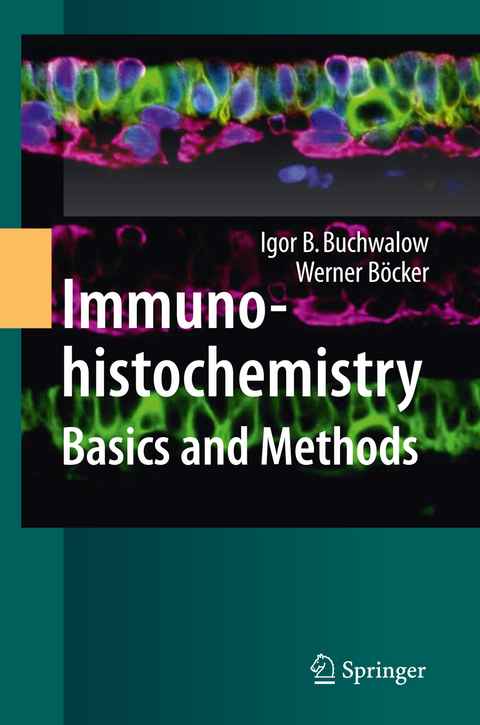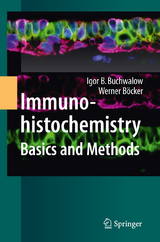Combiningtwodifferentscienti?cdisciplines morphologyandimmunochemistry immunohistochemistryhasdevelopedasanimportantinstrumentinresearchand clinicalpathology. A basicunderstandingofunderlying principlesandpotential problemsisunavoidableifyouwanttobesuccessfulinyouruseofimmunohis- chemistry,aswellasingettingyourpaperspublishedandyourresearchgrants funded. Whilemanyexcellenttextsandmonographsexistwhichcovervariousaspects ofimmunohistochemistry,thelackofaconcisecomprehensiveguidetousing thesemethodswasamajormotivationforwritingthisbook. Ourintentionwasto createaneasy-to-readandfocusedresourcebasedonstate-of-the-artinformation forabroadaudiencerangingfromstudentsandtechnicalassistantstoexperienced researchers. Thishandbookhasaconciseformat,withprotocolsandinstructionsfor methodsimmediatelyfollowingtheshortintroductorytheoreticalmaterialineach chapter. BeingconsciousofthegrowingroleofInternetasaninformationsource, wehavefounditreasonableinmanycasestosubstitutecitingbooksandjournal publications with corresponding Internet websites. Where possible, commercial sourcesofreagents,kits,andequipmentarelistedthroughoutthetextinsteadof inaseparateindex. Thougheachchapterissmallandintroductory,thishandbook itself is self-suf?cient and provides a comprehensive look at the principles of immunohistochemistry. For readers wanting further depth of knowledge, each chapterisbackedupbyashortlistofcarefullyselectedoriginalarticles. Duringthelastdecade,pioneeringeffortsofhistochemistshaveledtoan- menseimprovementinthereagentsandprotocols. Theresearcherisurgedalwaysto determinethereasonforeverymethodandstepbeforedoingit. Thishandbookis intendedtohelpreaderstoavoidtroublesinthechoiceofanadequatemethod,which happenswhenusingstandardtextbooks. Forthishandbook,wecarefullyselected establishedmethodsandeasy-to-adoptprotocols,payingattentiontomoderndev- opmentsinimmunohistochemistry,suchasantigenretrieval,signalampli?cation, the use of epitope tags in immunohistochemistry, multiple immunolabeling or diagnosticimmunohistochemistry. Eachofthemethodsdescribedinthishandbook v vi Preface was provedby the authors; many of these methods are routinely used in daily practiceintheirinstitute. Allthepracticalmethodsadvocatedareclearlydescribed, withaccompanyingtables,andtheresultsobtainableareillustratedwithcolour micrographs. Acknowledgements We thank Vera Samoilova forthe perfect technical assistance and other colleaguesfromtheMu nsterUniversityClinicforsharingprobesandreagents. IgorB. BuchwalowandWernerBo cker Mu nster Contents 1 AntibodiesforImmunohistochemistry . . . . . . . . . . . . . . . . . . . . . . . . . . . . . . . . . . 1 1. 1 StructureofAntibodies . . . . . . . . . . . . . . . . . . . . . . . . . . . . . . . . . . . . . . . . . . . . . . . . 2 1. 2 PolyclonalAntibodies . . . . . . . . . . . . . . . . . . . . . . . . . . . . . . . . . . . . . . . . . . . . . . . . . 4 1. 3 MouseMonoclonalAntibodies . . . . . . . . . . . . . . . . . . . . . . . . . . . . . . . . . . . . . . . . 4 1. 4 RabbitMonoclonalAntibodies . . . . . . . . . . . . . . . . . . . . . . . . . . . . . . . . . . . . . . . . 5 1. 5 ProteinAandProteinGinImmunohistochemistry . . . . . . . . . . . . . . . . . . . 7 References . . . . . . . . . . . . . . . . . . . . . . . . . . . . . . . . . . . . . . . . . . . . . . . . . . . . . . . . . . . . . . . . . . 8 2 AntibodyLabelingandtheChoiceoftheLabel . . . . . . . . . . . . . . . . . . . . . . . . 9 2. 1 CovalentLabelingofAntibodies . . . . . . . . . . . . . . . . . . . . . . . . . . . . . . . . . . . . . . 9 2. 2 Non-CovalentLabelingofPrimaryAntibodieswith LabeledFabFragments . . . . . . . . . . . . . . . . . . . . . . . . . . . . . . . . . . . . . . . . . . . . . . . 10 2. 3 EnzymeLabelsforLightMicroscopy . . . . . . . . . . . . . . . . . . . . . . . . . . . . . . . . 13 2. 4 FluorophoreLabelsforFluorescenceMicroscopy . . . . . . . . . . . . . . . . . . . 15 2. 5 ColloidalGoldLabelsforElectronMicroscopy . . . . . . . . . . . . . . . . . . . . . 1
Prof. Dr. med. Werner Böcker absolvierte ein Medizinstudium in Münster, München, New York und Hamburg und eine Ausbildung am Institut für Pathologie der Universität Hamburg. 1985 folgte die Berufung an die Westfälische Wilhelms-Universität Münster als Professor für "Allgemeine und Spezielle Pathologie" am Gerhard-Domagk-Institut für Pathologie. Seit 1987 ist er Ordinarius des Gerhard-Domagk-Instituts für Pathologie. 1988 und 1989 wurde er zum "Hochschullehrer des Jahres" an der Medizinischen Fakultät der Universität Münster gewählt.
Antibodies for Immunohistochemistry.- Antibody Labeling and the Choice of the Label.- Probes Processing in Immunohistochemistry.- Working with Antibodies.- Background Staining, Autofluorescence and Blocking Steps.- Immunostaining Enhancement.- Multiple Multicolor Immunoenzyme Staining.- Multiple Immunofluorescence Staining.- Antigen Detection on Tissues Using Primary Antibody Raised in the Same Species.- Probes for Staining Specific Cellular Organelles.- The Use of Epitope Tags in Histochemistry.- Immunohistochemistry at the Ultrastructural Level.- Diagnostic Immunohistochemistry.- A Picture Is Worth a Thousand Words.
From the reviews:
"Immunohistochemistry: Basics and Methods, a new book that aims to make the technique accessible to a wide audience. ... The text is easy to read and practical ... . this book is an effective primer on the science and technique of immunohistochemistry. I would recommend ... particularly to those who are themselves doing a significant amount of hands-on immunohistochemistry or for those seeking to develop the technique in their department. Indeed anyone involved in the interpretation of immunohistochemistry would benefit from reading this book." (Colan Ho-Yen, ACP News, Spring, 2011)
| Erscheint lt. Verlag |
12.2.2010
|
| Zusatzinfo |
X, 153 p. |
| Verlagsort |
Berlin |
| Sprache |
englisch |
| Maße |
155 x 235 mm |
| Gewicht |
420 g |
| Themenwelt
|
Studium ► Querschnittsbereiche ► Infektiologie / Immunologie |
| Schlagworte |
antibodies • Antigen • Diagnostic immunohistochemistry • Epitope tags • Gewebe (Biologie) • Immunoenzyme staining • Immunologie • Imunofluorescence • tissue |
| ISBN-10 |
3-642-04608-8 / 3642046088 |
| ISBN-13 |
978-3-642-04608-7 / 9783642046087 |
| Zustand |
Neuware |




